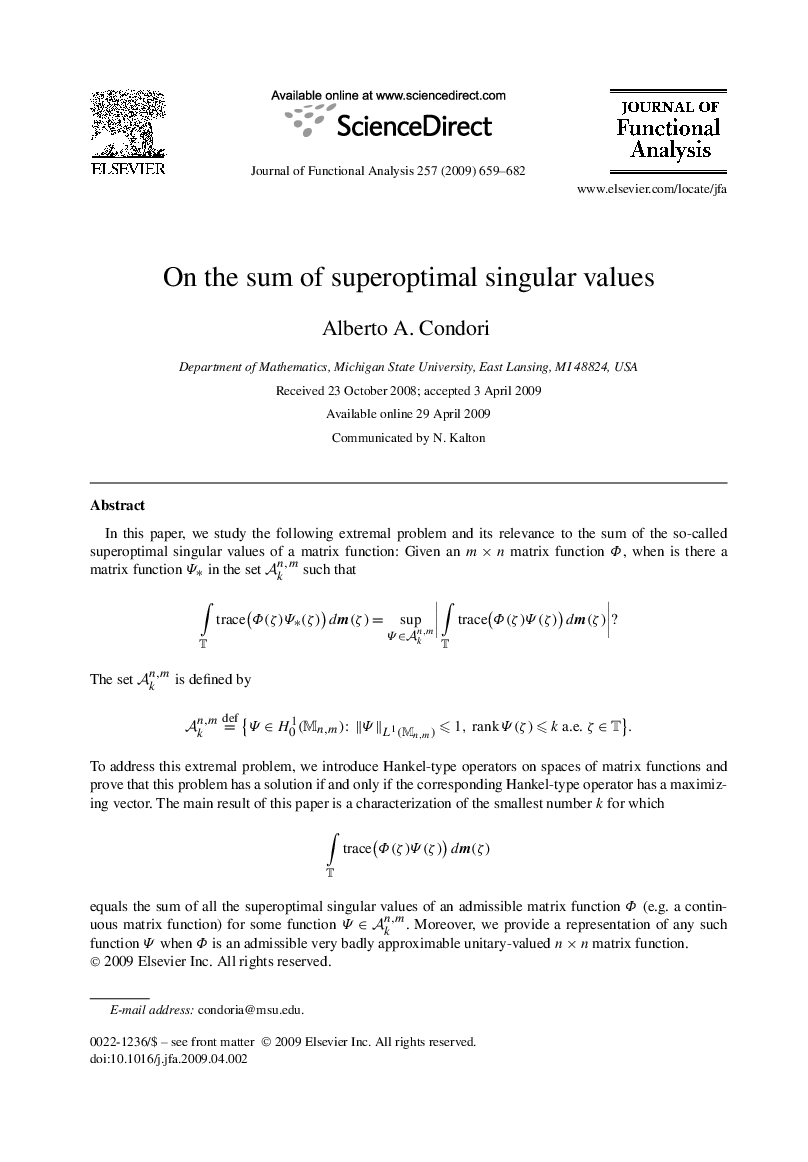| کد مقاله | کد نشریه | سال انتشار | مقاله انگلیسی | نسخه تمام متن |
|---|---|---|---|---|
| 4592534 | 1335109 | 2009 | 24 صفحه PDF | دانلود رایگان |

In this paper, we study the following extremal problem and its relevance to the sum of the so-called superoptimal singular values of a matrix function: Given an m×nm×n matrix function Φ , when is there a matrix function Ψ∗Ψ∗ in the set Akn,m such that∫Ttrace(Φ(ζ)Ψ∗(ζ))dm(ζ)=supΨ∈Akn,m|∫Ttrace(Φ(ζ)Ψ(ζ))dm(ζ)|? The set Akn,m is defined byAkn,m=def{Ψ∈H01(Mn,m):‖Ψ‖L1(Mn,m)⩽1,rankΨ(ζ)⩽k a.e. ζ∈T}. To address this extremal problem, we introduce Hankel-type operators on spaces of matrix functions and prove that this problem has a solution if and only if the corresponding Hankel-type operator has a maximizing vector. The main result of this paper is a characterization of the smallest number k for which∫Ttrace(Φ(ζ)Ψ(ζ))dm(ζ) equals the sum of all the superoptimal singular values of an admissible matrix function Φ (e.g. a continuous matrix function) for some function Ψ∈Akn,m. Moreover, we provide a representation of any such function Ψ when Φ is an admissible very badly approximable unitary-valued n×nn×n matrix function.
Journal: Journal of Functional Analysis - Volume 257, Issue 3, 1 August 2009, Pages 659–682